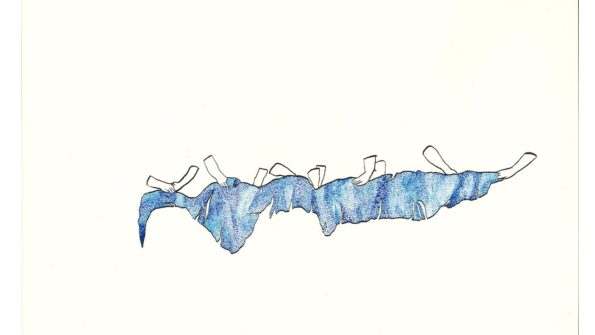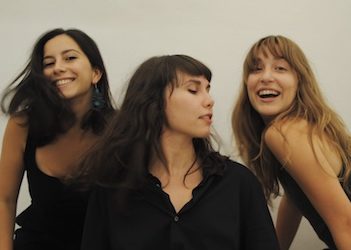Search
To search for an exact match, type the word or phrase you want in quotation marks.
A*DESK has been offering since 2002 contents about criticism and contemporary art. A*DESK has become consolidated thanks to all those who have believed in the project, all those who have followed us, debating, participating and collaborating. Many people have collaborated with A*DESK, and continue to do so. Their efforts, knowledge and belief in the project are what make it grow internationally. At A*DESK we have also generated work for over one hundred professionals in culture, from small collaborations with reviews and classes, to more prolonged and intense collaborations.
At A*DESK we believe in the need for free and universal access to culture and knowledge. We want to carry on being independent, remaining open to more ideas and opinions. If you believe in A*DESK, we need your backing to be able to continue. You can now participate in the project by supporting it. You can choose how much you want to contribute to the project.
You can decide how much you want to bring to the project.

pli-é collective (Eva Paià, Marina Ribot Pallicer, Angelica Tognetti)
In front of two windows, the one that opens to the street and the one that takes us into the virtual abyss, sitting for more than a month in the same desk chair and as workers in the cultural sector, we feel the need to share in this space some reflections that have been accompanying us in these days and that we have been generating in network through periodic video calls and shared documents. These are unfinished, open and oscillating considerations that are being developed from physical isolation and are expressed from the possibility of being able to make them, from the awareness that quarantine is a class privilege and that many are, these days, in unacceptable conditions, exposing themselves to the virus [1].
From this specific point of view, we believe it is necessary to propose a first approach, a critical and self-critical analysis of some of the reactions that are taking place in the cultural sector in the face of the worsening crisis in the health and care system.
Throughout these weeks we have been immersed in a flood of publications, conferences, virtual visits, concerts,… Infinite spirals of content that institutions, cultural agents and artists are enlarging and sharing, encouraged not to fade away, not to be relegated to oblivion, resisting leaving empty spaces in our practices [2]. In this desire for presence, we repeat capitalist models of production, activity and constant visibility. We reproduce norms and precepts that have little to do with our work when, with fear or illusion, we succumb to “generating content”, responding to consumer logics that can become abusive. Abusive because they do not stop and abusive because they are not paid.
From uncertainty or from enthusiasm we condemn ourselves to a situation of hyperactivity. We think of “sharing” as a form of accompaniment, and perhaps in a certain way it is, but we cannot forget that the network is configured so that we remain in an eternal present in which there is no space for listening, which does not allow us to think about or question what is shared, who is addressed or why it is done. This situation only accentuates the systemic precariousness in which we are normally already immersed. However, under the excuse of helping and accompanying us in a state of confinement, we “produce” in the network more than ever, to be more visible and make our work viral, so that it is “consumed” under the pretext of entertaining or as a result of the fear of disappearing.
The web is presented as a medium, a strategy for professionalization, and we perceive it as such: we constantly post carefully crafted content to generate virtual I-brands. From a cultural point of view, this process becomes extremely problematic as it becomes a quantitative rather than a qualitative issue. For Remedios Zafra “the frenetic net-culture is sustained more on the basis of impression than on concentration. More in the screen capture than in the slow reflection” [3].
This productivism derived from “generating” and “consuming” culture affects institutions, both museums and art centers, but it is the artists and cultural workers not linked to the institution who are most unprotected against this logic of unpaid consumption. The situation affects even more those of us who, not linked to an institution, do not work on a regular basis as self-employed either, because our income does not allow us to pay the monthly fee and we are drowning in a sea of social security registrations and cancellations. We are left helpless before a State that applies generalised protection measures and does not take into account the specific nature of work in the cultural sector.
So do we want to continue producing on networks without being paid? Do we want to contribute to the proliferation of symbolic capital gains? Do we want to continue working when we know that there will surely be cuts and that our work will be affected?
Sometimes we detach ourselves from the screen in front of which we were absorbed and breathe. We dare to ask other questions: what happens if we stop, if we do nothing, if we give ourselves the time? what happens if we move away from the screen to circulate the scenarios that inhabit the margins of what is visible online?
Now, more than ever, we believe that art and culture should be a form of accompaniment but also a way of questioning ourselves, of rethinking the world, in a dynamic way and in constant questioning. Beyond a flood of online content, we believe that it is time to rethink culture as we have put it into practice up to now, and in particular in relation to social networks.
In the face of unreflective hyperproductivity, we propose: to inhabit other rhythms and dimensions such as waiting, listening, emptiness, tiredness, inspirations and expirations; to develop a critique that opens gaps in which we can create together [4]; to ask ourselves questions constantly; to disconnect from time to time; to think of ourselves from our bonds; to listen to each and every one of our vulnerabilities; to open holes in saturated situations in order to breathe [5]; to leave space for the thought of the other and to imagine together other possible scenarios.
[1] We recommend reading: Parlamento Plurinacional y Popular de Mujeres, y Organizaciones Feministas del Ecuador (2020): «Cuidados para el pueblo en tiempos de pandemia: reflexiones colectivas para transitar la incertidumbre, ensayos para no habitar la impotencia» in La Vorágine. Available at: https://lavoragine.net/cuidados-para-el-pueblo-parlamento-mujeres/
[2] Zafra, Remedios (2019): «La expectativa cruel. Ensayo sobre vidas-trabajo, precariedad y cultura» en Echaves, Marta; Gómez Villar, Antonio y Ruido, María (Eds.): Working Dead, La Virreina Centre de la Imatge: Barcelona
[3] Ibidem.
[4] Garcés, Marina (2009): Abrir los posibles. Los desafíos de una política cultural hoy, at the blog Menoslobos.org
[5] Fernández-Savater, Amador (2019): «Pensar, para poder respirar» en El Diario. Available at: https://www.eldiario.es/interferencias/Pensar-poder-respirar_6_971212879.html
(Featured Image: Christina Schultz. Perder el tiempo o como levitar, 2019)

pli-é collective is a body shared by Eva Paià, Marina Ribot Pallicer and Angelica Tognetti. A space-time of encounter from which we conspire and generate spaces of listening and resistance; an organism in which we tension and deform the hegemonic stories through processes, trials and errors. A fabric where we cultivate curatorship as a form of care and accompaniment.
"A desk is a dangerous place from which to watch the world" (John Le Carré)